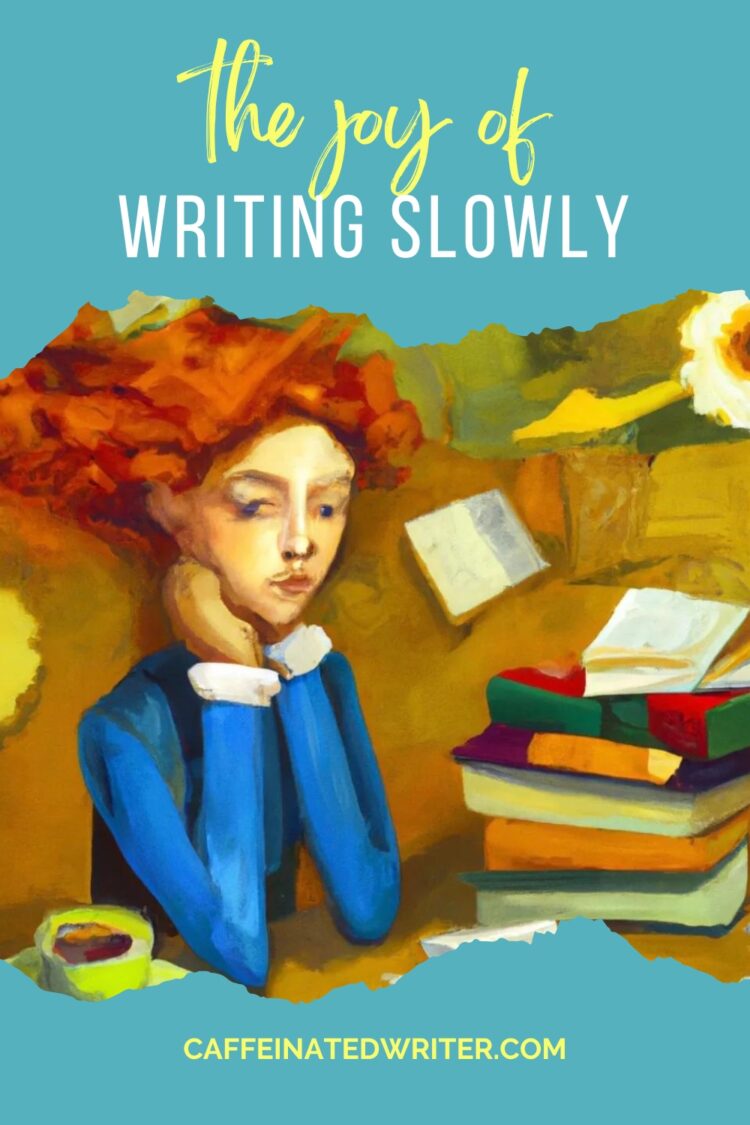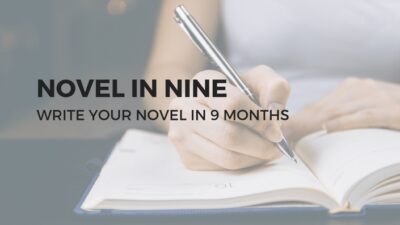The Joy of Slow Writing
Productivity is such a popular buzzword these days, it’s easy to fall under its spell. But art isn’t always productive. The pursuit of narrative is tricky, and therein lies the fun. The process is often messy and labyrinthine, leading you down unexpected paths. Those paths are where you find the best gems, where you get to the heart of your story. While bowing to the cult of productivity might make you a faster writer, it probably won’t make you a better writer.
The truth is that writing fiction is often a slow process. There’s really no way to hack your writing. There’s no way to streamline it to the point of complete efficiency if you hope to create any kind of art. The novelist who deletes nothing is the novelist who has written an unwieldy and bloated book.
If your final draft hasn’t shed a lot of pages and a character or two, if you haven’t discovered themes you didn’t understand in the beginning and gone back to work in those themes as a series of compounding echoes, then you probably haven’t done the real work of revising.

Some writers with a steady, serious work ethic and a supportive publisher manage to write a novel each year. It is possible to write a complex, fully developed novel in a year if you truly commit to writing just 2,000 words per month. Writing a novel in a few weeks or a couple of months, on the other hand, robs the writer of so much of the deepening thought process that the novel will necessarily suffer.
On the other end of the spectrum are writers like Dona Tartt, whose book The Goldfinch was a more than a decade in the making. In 2013 Tartt told Julie Bosnan of The New York Times that she had written scenes for The Goldfinch as far back as 1993. “That’s the way it’s been with all my books,” Tartt said. “Things will come to you and you’re not going to know exactly how they fit in. You have to trust in the way they all fit together, that your subconscious knows what you’re doing.”
The novelist who deletes nothing is the novelist who has written an unwieldy and bloated book.
The subconscious is a slow-burn kind of instrument. A race for productivity squeezes out the air a novelist needs to allow his or her subconscious to do the hard work of stitching disparate observations, ideas, and characters together into a thing of wonder.

It may surprise you to learn that I love NaNoWriMo; it’s both motivating and inspiring, especially if you struggle with getting started. But one should never view marathon writing binges as a substitute for the long, hard work of writing, failing, and writing again.
The subconscious is a slow-burn kind of instrument.
The productivity evangelists would balk at the real work of writing. After all, isn’t it a failure of time and efficiency to spend so much time studying something that will ultimately fall by the wayside, to spend so many pages on a scene that will ultimately be cut? A novelist’s research happens daily, in the people we encounter, the places we go, all the minor observations that build, over time, to create a perspective on the world. And we do the more traditional research too: if your protagonist is a scientist, you should read deeply in the science she practices. If your protagonist is a chef, you should seek to understand what that world is like by interviewing a chef.
A race for productivity squeezes out the air a novelist needs to allow his or her subconscious to do the hard work of stitching disparate observations, ideas, and characters together into a thing of wonder.
While you are collecting experiences and observations, while you are reading and becoming more knowledgeable and more adpet at language and syntax, your subconscious is there in the background, seeking out the associations that will come together to make a creative whole.
Here’s the hard, beautiful truth about writing: Only a small amount of the research you do will actually make it into your novel or story. No matter how well you plan, many of the paragraphs and pages you write will eventually end up on the editing room floor. Not because you weren’t writing as efficiently as you could be, but because you grow during the course of writing a book. As you write — as you do the hard, thoughtful work — you learn which way the book needs to go. You discover what is dragging the story down, and what you need to build it back up.
If your goal as a writer is simply to be productive, you will always let yourself down. If your goal is to do your best work, you will be a much better, more genuine writer. Maybe what we need, to go along with slow food and slow living, is a slow writing movement.
Michelle Richmond is the New York Times bestselling author of five novels and two story collections, including most recently The Wonder Test and the psychological thriller THE MARRIAGE PACT, which has been published in 30 languages. She helps writers complete their novels with steady monthly progress in the nine-month writing course Novel in Nine.

